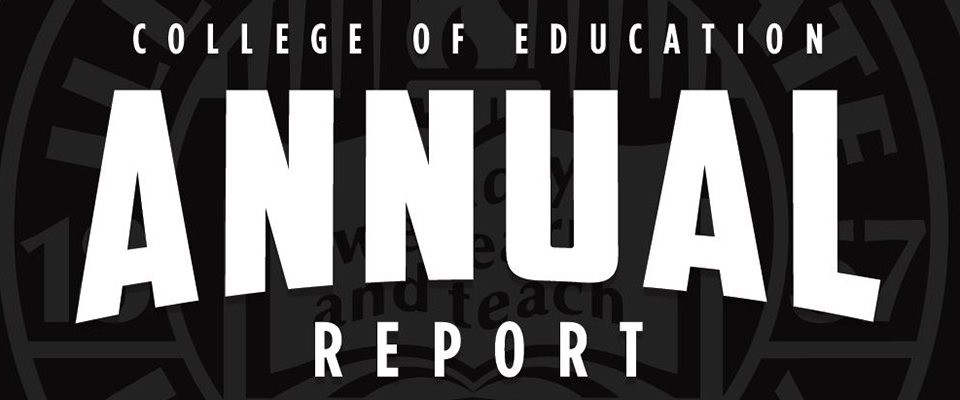
A Message from Dean Francis Godwyll
I thank the College of Education community and the entire Illinois State University for receiving me as your new leader in the College. I take this responsibility very seriously, and I look forward to continuing the legacy of preparing excellent teachers and educational leaders.
The words "unprecedented” and “extraordinary” have been used often to describe our collective experiences over these difficult and uncertain pandemic years. While appropriate, these words sometimes fail to capture just how life-changing this event has been for everyone. As an institution and a college, we have weathered the storm and emerged strong as students, faculty, and staff. It behooves us not to rest on our oars but to continue building a more resilient post pandemic community impacting all our stakeholders. As we look to the future, we will use eight pillars to guide our work with students, faculty, staff, alumni, and our community: PR 2AISE-U.
Preservation of our enduring values and resources.
Recruitment of strong students, faculty, and staff.
Retention of students, faculty, and staff by providing adaptable support structures.
Achievement for students, faculty, and staff in their professional and personal lives.
Internationalization of COE programs and opportunities.
Support holistic ecological, human, and financial structure for all members of the College.
Equity is providing impartial resources for units to function appropriately.
Unity in creating a welcoming, respectful, safe, and collaborative environment
Through our commitment to our guiding pillars and to our many stakeholders, Illinois State will continue to be a leader in the field of education. We are proud of the many achievements of our alumni base of more than 60,000 educators throughout all 50 U.S. states and in 68 countries worldwide. Within Illinois, almost one in six teachers are alumni of the University.
We continue to work with our alumni, community partners, and school districts throughout the state to enhance and build pipeline programs that provide nontraditional pathways and clinical experiences in students’ home communities.
Despite the challenges of our times, our enrollment remains strong, and we look forward to continuing our commitment to student achievement and support through additional scholarship funds and in our new Barbara and Larry Efaw Center for Educator Excellence.
We will work together to expand student options and access to teacher education study abroad programs and international student teaching.
As we collaborate as faculty, staff, alumni, and students in the College of Education, we will strive to build upon an already firm foundation and continue to create a sustainable and respectable legacy.
We invite you to enjoy learning more about how the College of Education continues to provide premier programs that further cement Illinois State’s reputation as a leader in educator preparation.